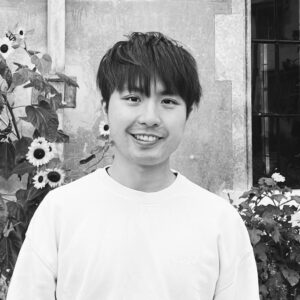As part of the IAFOR Global Fellowship Programme Series, Dr Sheng-Hsiang Lance Peng, a 2024 IAFOR Global Fellow, will facilitate a workshop in the panel ‘Innovative approaches to knowledge creation’ at the first annual Cambridge Creative Research Conference 2024.
The workshop titled ‘Finding ghosts within the research network’ will introduce Dr Peng’s research method, which reflects his innovative approaches, such as mnemohistory, monster culture, and hauntology, in his ongoing work with marginalised narratives. The workshop will be held online on Saturday, October 26 from 14:15-15:15 BST.
The Cambridge Creative Research Conference is held in collaboration with the University of Cambridge, United Kingdom. The conference will be held online via Zoom from 10:00-17:00 BST on Saturday, October 26. General admission is free, but pre-registration is required.
We invite you to join us in supporting our Fellow at the conference!
Dr Sheng-Hsiang Lance Peng
University of Cambridge, United Kingdom
Dr Sheng-Hsiang Lance Peng is an early career research fellow at IAFOR, having recently completed his PhD from the Faculty of Education at the University of Cambridge, United Kingdom. His PhD work combines the spectral lens of hauntology with phenomenology to explore the gender(ed) lives of justice-involved girls in out-of-home care. Dr Peng leverages his experience in applying uncanny perspectives such as mnemohistory, monster culture, and hauntology to work with marginalised narratives, and he currently uses monstrous othering to reinterpret voices on the fringes of Japanese society context as part of his monster(s) project.
Abstract
Finding ghosts within the research network
In this workshop, I will explore hauntology and its application in research fieldwork. Hauntology, originating from the work of French philosopher Jacques Derrida, refers to the study of spectres, ghosts, and traces of the past that linger in the present. Through an interactive and reflective session, participants will look into the conceptual foundations of hauntology, examining its implications for understanding social phenomena and the research process.
I will firstly uncover how hauntology offers a lens through which to interrogate the hidden dimensions of research encounters, acknowledging the influence of absent voices, forgotten histories, and unacknowledged presences. Participants will be invited to reflect on their own research practices and fieldwork experiences, considering how hauntological approaches can enrich their understanding and interpretation of these encounters. As a takeaway from the workshop, I am thinking guiding participants in creating their own mind maps, synthesising key insights and concepts discussed during the session. These mind maps will serve as tools for participants to apply hauntology to their future research practice, providing a visual framework for exploring the spectral dimensions of their fieldwork and embracing the ‘ghosts’ of the research process.


